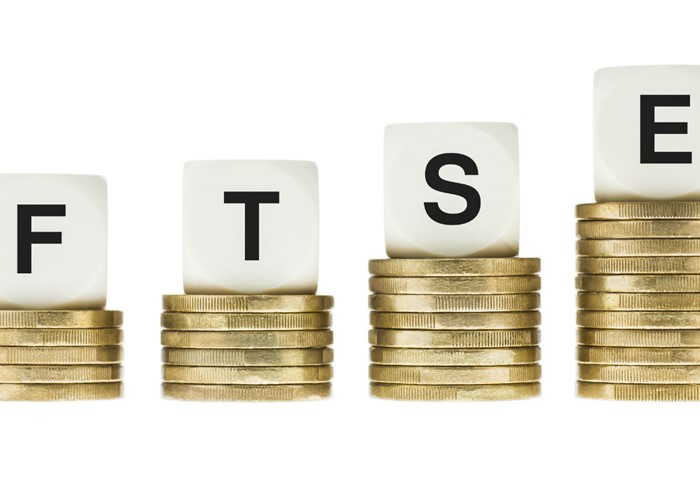Why falling inflation can hurt your investments

Inflation is falling, and that's not good news for your shares.
The rate of inflation has fallen to a record low. While falling prices put more money in our pockets, they also put corporate profits under pressure. And that could mean bad times for your investments.
Inflation dives to a record low
Inflation, as measured by the Consumer Prices Index (CPI), plunged to just 0.5% in December. November's figure was 1%, so inflation has halved in a single month for the first time in British history. What's more, this is the lowest rate of CPI inflation for almost 15 years.
The main cause for the collapse in inflation is the ongoing crash in the price of oil. Having peaked at a high of $115 in June last year, the price of a barrel of Brent Crude has collapsed to a six-year low just above $46 at the time of writing. This 60% drop in the cost of oil has caused petrol and diesel prices to slump, delivering big savings to British drivers.
In addition, a fresh price war between big UK supermarkets is pushing down food and drink prices, delivering more savings to household budgets. However, while shoppers are better off, shareholders in supermarkets have been given a nasty shock.
A shock for oil shares
The past six months have been something of a horror show for shareholders in oil companies. As the oil price has collapsed, many ventures have gone from being highly profitable to barely viable, all in the space of half a year. As a result, the share prices of major oil producers and explorers have followed oil's fall southwards, as the following table shows (sorted from smallest to largest fall):
|
Company |
Share-price fall over six months |
|
Royal Dutch Shell |
16.4% |
|
BP |
24.2% |
|
Tullow Oil |
55.1% |
Despite these steep falls, the worst may be yet to come for owners of oil firms. Royal Dutch Shell has announced that it is scrapping a $6.5 billion project in Qatar, thanks to the rout in the oil price. If the oil price continues its seemingly unstoppable slide south, then shareholders in oil and gas businesses could face even greater losses.
Compare stocks & shares ISAs with lovemoney.com
Suffering supermarkets
While oil companies suffer as the crude price plunges, supermarkets struggle as they cut each other's throats in an all-out price war. With four pints of milk on offer for £1 and a loaf of bread on sale at under 80p, the cost of everyday staples is falling fast.
While this fresh assault on checkout prices is great for squeezed household budgets, it's a nightmare for shareholders in supermarkets. Here's how the share prices of the 'Big Four' grocers have collapsed over the past six months:
|
Supermarket |
Share-price fall over six months |
|
Wm Morrison |
+2.3% |
|
J Sainsbury |
23.3% |
|
Tesco |
23.7% |
|
ASDA |
N/A |
Interestingly, Morrisons share price has actually risen by a little over 2% since mid-July 2014. However, it has experienced multi-year falls and is down 27.9% over the past 12 months. ASDA is wholly owned by American retail giant Wal-Mart Stores, whose share price is actually up 14.4% in half a year, reflecting its strength in its US homeland.
Sainsbury's and Tesco shares have fallen by similar amounts over the past six months, reflecting severe market competition from deep discounters Aldi and Lidl.
Deflation damages shares
One worry for economists - and for British shareholders - is that the current low expectations for inflation could tip over into full-blown deflation. Deflation can be disastrous for businesses and their investors, because a sustained period of falling prices can encourage people to put off their spending.
For example, why buy a new car today if you expect the price to be significantly lower in six months from now?
When deflation gets a grip on an economy, the result can be years of 'stagflation' - stagnant or falling growth caused by depressed prices. One worry right now is that the eurozone could be heading for such a period of sustained deflation.
Indeed, for the first time since October 2009, prices in the currency bloc were 0.2% lower in December 2014 than a year earlier. This fall in prices, driven by the oil glut, puts huge pressure on the European Central Bank to begin quantitative easing (essentially printing money) to stimulate spending and push up growth.
Compare stocks & shares ISAs with lovemoney.com
Japan's lost decade
A frightening example of how deflation destroys economies is Japan, the world's third-largest economy.
After rapid economic growth and a huge boom in asset prices in the Eighties, Japan's twin bubbles in share prices and property values burst in the early Nineties. What followed was the 'Lost Decade' of 1991 to 2000, during which Japan's national output, consumer prices and wages declined, while share prices and property values crashed spectacularly.
A second, but less traumatic, lost decade also followed in Japan from 2001 to 2010. These back-to-back lost decades left Japan's main Nikkei 225 index hovering around 10,000, down nearly 75% from its December 1989 peak above 38,900.
While such dramatic declines are not expected here in the UK or in the eurozone, the fact remains that deflation can spell doom for share prices. When picking and choosing shares this year, be wary of companies that are unable to raise their prices, but are forced to absorb rising costs. When the cost of living falls over a sustained period, share prices will often follow suit as economic recovery is derailed.
Compare stocks & shares ISAs with lovemoney.com
More on investing:
Pay no fee for your investments until 2016
Comments
Be the first to comment
Do you want to comment on this article? You need to be signed in for this feature